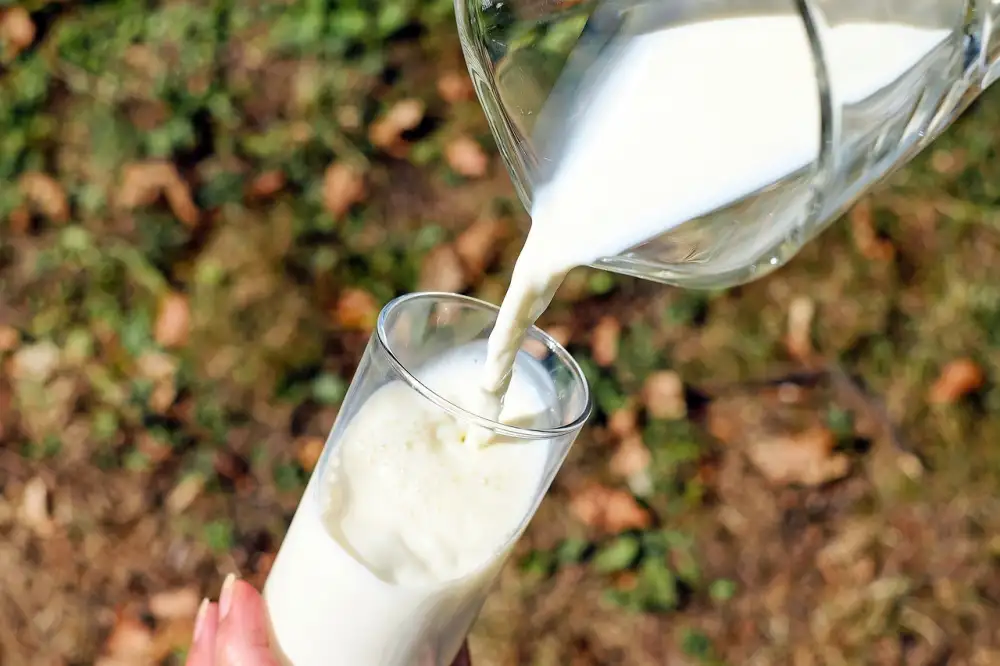Unveiling the Shelf Life of Almond Milk: Does Almond Milk Go Bad? Discover the Signs of Spoilage

Almond milk has gained popularity as a dairy-free alternative, loved by vegans and lactose-intolerant individuals. But just like any other perishable product, almond milk has a limited shelf life. As a consumer, it is important to understand how long almond milk lasts and the signs of spoilage to ensure you are consuming fresh and safe almond milk. In this article, we will delve into the factors that affect the shelf life of almond milk and provide proper storage tips to extend its freshness. So let's uncover the mysteries behind the shelf life of almond milk!
How Long Does Almond Milk Last?
How long almond milk lasts depends on various factors. Unopened almond milk can typically last up to a month past the expiration date when stored properly in the refrigerator. Once opened, it is recommended to consume it within 7-10 days for optimal freshness and taste. However, it's important to note that these are general guidelines and the shelf life may vary depending on the brand and quality of the almond milk. To ensure its freshness, always check for signs of spoilage before consuming.
Factors Affecting the Shelf Life of Almond Milk
Several factors can influence the shelf life of almond milk. The first is the packaging. Almond milk that comes in aseptic cartons tends to have a longer shelf life compared to those in plastic bottles or containers. This is because aseptic cartons provide better protection against light and oxygen, which can degrade the quality of almond milk.
Another factor is temperature. Almond milk should be stored in a cool and dry place, away from direct sunlight and heat sources. Exposure to high temperatures can accelerate spoilage and reduce its shelf life. It is best to store almond milk in the refrigerator once opened, as this helps maintain its freshness for a longer period.
The quality of ingredients used also plays a role in determining the shelf life of almond milk. If fresh almonds are used, the resulting almond milk will have a shorter shelf life compared to those made with commercially processed almond meal or powder.
Lastly, proper handling and hygiene practices are crucial in extending the shelf life of almond milk. Contamination from dirty utensils or unclean hands can introduce bacteria into the product, leading to spoilage. It is essential to always use clean utensils when pouring or scooping almond milk and ensure that hands are washed before handling it.
By considering these factors and following proper storage guidelines, you can maximize the shelf life of your almond milk and enjoy it at its freshest for longer periods.
Signs of Spoilage in Almond Milk
It is important to be aware of the signs that indicate almond milk has gone bad. One of the first things to look for is a change in color. Fresh almond milk should have a creamy white appearance, but if it starts to turn yellow or develop brown spots, it is a clear sign of spoilage.
Another indicator is the smell. Almond milk should have a mild, nutty aroma. If you notice any sour or off-putting odors, it means that the milk has likely spoiled and should not be consumed.
Texture changes can also signify spoilage. If the almond milk becomes clumpy or curdled, it is no longer safe to consume. Additionally, any mold growth on the surface is a definite sign of spoilage and should be discarded immediately.
Lastly, taste plays a crucial role in determining if almond milk has gone bad. If you detect any sour or bitter flavors, it indicates spoilage and consuming it could lead to digestive issues.
To ensure your safety and enjoyment, always check for these signs before consuming almond milk past its expiration date or if it has been improperly stored. Remember that consuming spoiled almond milk can lead to foodborne illnesses, so it's better to be safe than sorry.
Proper Storage Tips for Extending the Shelf Life of Almond Milk
Proper storage is crucial for extending the shelf life of almond milk and ensuring its freshness. Here are some tips to help you keep your almond milk safe and delicious for longer:
1. Refrigerate promptly: After opening the container, make sure to refrigerate almond milk immediately. The cold temperature of the fridge slows down the growth of bacteria, keeping your almond milk fresh.
2. Seal tightly: Always seal the container tightly after each use. This prevents air from entering and reduces the risk of contamination.
3. Store in a cool place: Keep your almond milk away from heat sources like stoves or direct sunlight. High temperatures can accelerate spoilage, so storing it in a cool place is essential.
4. Avoid cross-contamination: Use clean utensils when scooping out almond milk from the container to prevent introducing bacteria into it.
5. Check for signs of spoilage regularly: Regularly inspect your almond milk for any changes in texture, color, or smell. If you notice any abnormalities, discard it immediately.
By following these storage tips, you can extend the shelf life of your almond milk and enjoy its creamy goodness for a longer period while ensuring safety and freshness.
In conclusion, understanding the shelf life of almond milk is crucial for enjoying fresh and safe beverages. By knowing how long almond milk lasts and the factors that affect its shelf life, you can ensure that you consume it before it spoils.
Remember to always check for signs of spoilage, such as a sour smell or curdling, before consuming almond milk. If you notice any of these signs, it's best to discard the milk to avoid any potential health risks.
Proper storage is also essential in extending the shelf life of almond milk. Keep it refrigerated at all times and consume it within the recommended time frame. Additionally, be mindful of cross-contamination by using clean utensils when handling almond milk.
By following these guidelines, you can enjoy fresh and safe almond milk in your recipes and beverages without worrying about spoilage or compromising your health. So go ahead and savor every sip of this nutritious dairy alternative!
Published: 28. 12. 2023
Category: Health



